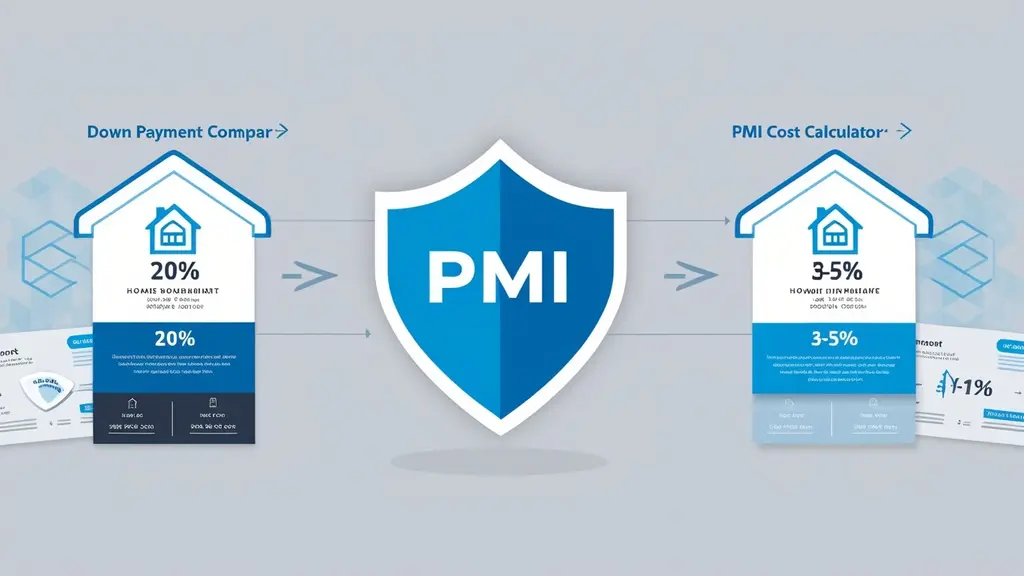Table of Contents
Understanding Private Mortgage Insurance: A Comprehensive Overview
Private Mortgage Insurance:(PMI) plays a crucial role in helping prospective homeowners achieve their dreams of homeownership, particularly when they cannot make a 20% down payment. This comprehensive guide will walk you through everything you need to know about obtaining PMI, its costs, and how to eventually remove it.
“Private Mortgage Insurance has helped millions of Americans become homeowners sooner rather than later by reducing the burden of large down payments.” – National Association of Realtors
Key Takeaways:
- PMI is typically required for conventional loans with less than 20% down payment
- Multiple PMI payment options are available
- PMI can be removed once you reach 20% equity
- Understanding PMI costs helps in long-term financial planning
What is Private Mortgage Insurance?
Private Mortgage Insurance is a type of insurance that protects lenders against potential losses if a borrower defaults on their mortgage. While PMI primarily benefits the lender, it enables borrowers to purchase homes with down payments as low as 3-5% of the purchase price.
How PMI Differs from Other Types of Mortgage Insurance
| Type of Insurance | Required For | Who Provides | When It’s Required |
|---|---|---|---|
| Private Mortgage Insurance (PMI) | Conventional loans | Private insurers | Down payment < 20% |
| FHA Mortgage Insurance | FHA loans | Federal government | All FHA loans |
| USDA Mortgage Insurance | USDA loans | Federal government | All USDA loans |
| VA Funding Fee | VA loans | Department of Veterans Affairs | Most VA loans |
How to Get Private Mortgage Insurance: Step-by-Step Process
1. Evaluate Your Need for PMI
Before pursuing PMI, consider these factors:
- Your current down payment amount
- Local housing market conditions
- Your credit score and financial situation
- Long-term homeownership goals
2. Check Your Credit Score
Your credit score significantly impacts PMI rates. Here’s what you need to know:
- Excellent (740+): Best PMI rates
- Good (680-739): Competitive rates
- Fair (620-679): Higher rates
- Poor (<620): May struggle to qualify
3. Compare PMI Providers
Different mortgage lenders work with various PMI providers. Key comparison points include:
- Premium rates
- Payment options
- Cancellation policies
- Customer service ratings
PMI Payment Options
Monthly Premium
The most common payment method involves adding PMI costs to your monthly mortgage payment.
Single Premium
A one-time upfront payment made at closing.
Split Premium
Combines an upfront payment with lower monthly payments.
Lender-Paid PMI
The lender pays the PMI but typically charges a higher interest rate.
Calculating PMI Costs
PMI typically costs between 0.55% and 2.25% of your loan amount annually. Here’s a sample calculation:
Loan Amount: $300,000
PMI Rate: 1%
Annual PMI Cost: $3,000
Monthly PMI Payment: $250How to Remove PMI
Automatic Termination
- Occurs at 78% LTV based on original value
- Must be current on payments
- No action required from borrower
Borrower-Requested Cancellation
- Available at 80% LTV
- Must submit written request
- May require appraisal
- Good payment history required
Alternatives to Private Mortgage Insurance
- Save for a 20% down payment
- Use a piggyback loan (80-10-10)
- Explore government-backed loans
- Consider lender-specific programs
Expert Tips for Managing PMI Costs
Improving Your PMI Rate
- Maintain excellent credit
- Make a larger down payment if possible
- Shop multiple lenders
- Consider different payment structures
Accelerating PMI Removal
- Make extra principal payments
- Monitor home value appreciation
- Document home improvements
- Track your loan-to-value ratio
Conclusion
Private Mortgage Insurance, while an additional cost, can be a valuable tool for achieving homeownership sooner rather than later. Understanding how to get PMI, managing its costs, and planning for its eventual removal are crucial steps in your homebuying journey.
Frequently Asked Questions
How much does PMI typically cost?
PMI usually ranges from 0.55% to 2.25% of your loan amount annually, depending on factors like your credit score, down payment, and loan term.
Can I avoid PMI with a conventional loan?
Yes, by making a down payment of 20% or more, or by using alternative financing structures like piggyback loans.
How long do I have to pay PMI?
You can typically request PMI removal once you reach 80% LTV, and it automatically terminates at 78% LTV based on the original value.
Does PMI protect me as a borrower?
No, PMI protects the lender against potential losses if you default on your loan.
Can I deduct PMI premiums on my taxes?
The PMI tax deduction has varied over the years. Consult with a tax professional for current deductibility status.
Relevant External Resources:
